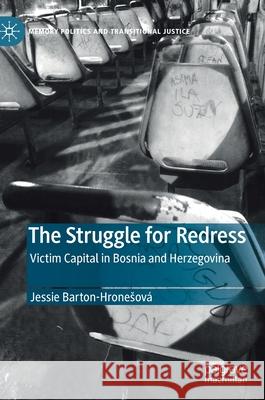The Struggle for Redress: Victim Capital in Bosnia and Herzegovina » książka
topmenu
The Struggle for Redress: Victim Capital in Bosnia and Herzegovina
ISBN-13: 9783030516215 / Angielski / Twarda / 2020 / 336 str.
The Struggle for Redress: Victim Capital in Bosnia and Herzegovina
ISBN-13: 9783030516215 / Angielski / Twarda / 2020 / 336 str.
cena 443,82 zł
(netto: 422,69 VAT: 5%)
Najniższa cena z 30 dni: 424,07 zł
(netto: 422,69 VAT: 5%)
Najniższa cena z 30 dni: 424,07 zł
Termin realizacji zamówienia:
ok. 22 dni roboczych
Bez gwarancji dostawy przed świętami
ok. 22 dni roboczych
Bez gwarancji dostawy przed świętami
Darmowa dostawa!
Kategorie BISAC:
Wydawca:
Palgrave MacMillan
Seria wydawnicza:
Język:
Angielski
ISBN-13:
9783030516215
Rok wydania:
2020
Wydanie:
2020
Numer serii:
000461754
Ilość stron:
336
Waga:
0.58 kg
Wymiary:
21.01 x 14.81 x 2.06
Oprawa:
Twarda
Wolumenów:
01
Dodatkowe informacje:
Wydanie ilustrowane











